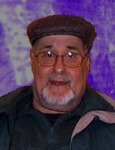
Issue:
6.03
The Gantseh Megillah
Click
icon to print page >
Designed
by Howard - http://www.pass.to
 |
||||
|
|
||||
| March 7, 2005 | ||||
| From Marley to Matisyahu | Issue: |
6.03 |
||
| Go
back to: The Gantseh Megillah |
Click
icon to print page > |
|||
Designed
by Howard - http://www.pass.to
|
||||
